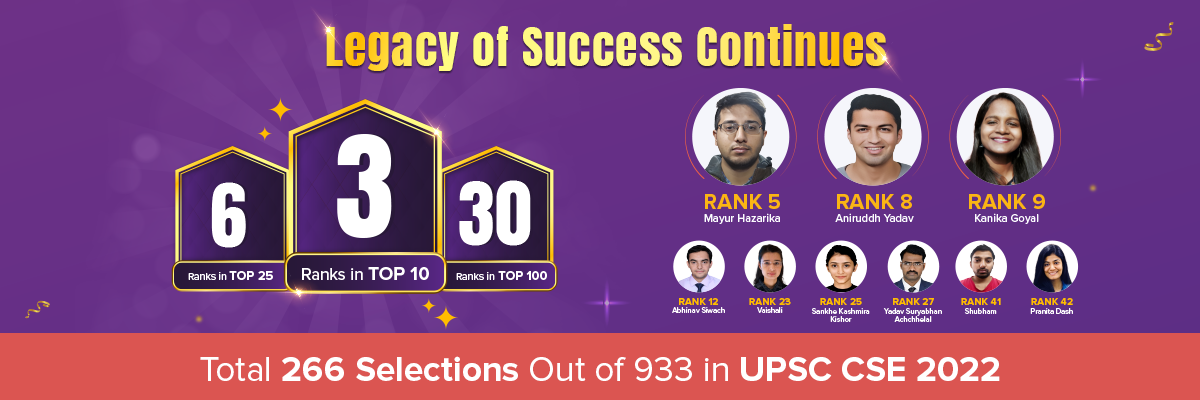The presence of a large number of regional parties is an important feature of the Indian Political System. They have come to play a vital role in Indian politics at all levels i.e. local state and national.
This article will give an in-depth analysis of the role regional parties play in Indian politics that will be of tremendous use in the Polity segment of the IAS Exam.
That being said, before we delve into this topic specifically, it is important to know about the features, classification and the factors that lead to the rise of regional parties in India.
Candidates can read more Polity articles from links below:
Get more Polity Notes for UPSC in the linked article.
List of Some Regional (State) parties in India:
- Aam Aadmi Party
- All India Anna Dravida Munnetra Kazhagam
- All India Majlis-E-Ittehadul Muslimeen
- All India N.R.Congress
- All India United Democratic Front
- Asom Gana Parishad
- Bodoland Peoples Front
- Pattali Makkal Katchi
- Rashtriya Lok Dal
- Samajwadi Party
Features of Regional Parties in India
The features of an Indian Regional Party are as follows:
- It generally operates within a specific state or specific region. Its electoral base is limited to a single region.
- It articulates regional interests and identifies itself with a particular cultural, religious, linguistic or ethnic group.
- It is primarily concerned with exploiting the local resources of discontent or preserving a variety of primordial demands based on language, caste or community or region.
- It focuses on local or regional issues and aims to capture political power at the state level. It has no inclination to expand and control the central government
- It has a political desire for greater regional autonomy of states in the Indian Union.
Classification of Regional Parties in India
The various regional parties in India can be classified into the following:
- Those regional parties which are based on regional culture and ethnicity. These include Shiromani Akali Dal, National Conference, DMK, AIADMK, Telugu Desam, Shiv Sena, Asom Gana Parishad, Mizo National Front, Jharkhand Mukti Morch and so on.
- Those regional parties which have an all-India outlook but lack a national electoral base. The examples are Indian National Lok Dal, All-India Forward Bloc, Revolutionary Socialist Party, Samajwadi Party, National Congress Party and so on.
- Those regional parties which have been formed by a split in National parties. For example, Bangla Congress, Telangana Praja Samithi, Trinamool Congress, YSR Congress and so on.
- Those regional parties which have been formed by individual leaders on the basis of their charismatic personalities. These are called as personalised parties and they are short-lived. The examples are Lok Janshakti Party, Haryana Vikas Party, Himachal Vikas Congress and so on.
Regional Parties in India- Download PDF Here
What led to the rise of Regional Parties in India?
Multiple factors can be attributed to the rise of regional parties in India. Some of them are as follows:
- Cultural and ethnic pluralism of Indian society.
- Economic disparities and regional imbalances in development
- Desire of certain section ares to maintain separate identity due to historical factors
- Self-interest of the deposed Maharajas and dispossessed Zamindars
- Failure of national politics to meet the regional aspirations
- Reorganisation of states on the basis of language
- Charismatic personality of the regional leaders
- Factional fights within the larger parties
- Centralising tendencies of the congress party
- Absence of strong opposition party at the central level
- Role of caste and religion in the political process
- Alienation and discontent among the tribal groups
What role do Indian Regional Parties play in Politics?
The following points highlight the role played by Regional Parties in India:
- They provide better governance and a stable government at the regional level
- They pose a challenge to the one-party dominant system in the country and led to a decline in the dominance of the one party.
- They make a strong impact on the nature and course of centre-state relations. The tension areas in centre-state relations and the demand for grant of greater autonomy make the central leadership more responsive to the needs of the regional actors.
- They make politics more competitive and popular participation in the political process more extensive at the grass roots.
- They widen the choice for voters in both the parliamentary and assembly elections. The voters can vote for that party which aims to promote the interest of the state/region
- They increase the political consciousness of the people and also their interest in politics. They bring into focus the local or regional issues which immediately attract the attention of the masses.
- They provide a chance against the dictatorial tendencies of the central government. They oppose the ruling party at the centre on certain issues and force the dominant party to the more reasonable in its approach to the process of conflict resolution
- They make a significant contribution to the successful functioning of parliamentary democracy. In a parliamentary democracy, the minority must have its say, the majority must have its way, and the regional parties have played this role successfully by being ruling parties in some states and opposition parties at the centre.
- They have succeeded in exposing the partisan role of the Governors in the appointment and dismissal of the Chief Minister, in issuing of ordinances and reservation of bills for the consideration of the President.
- After the dawn of the era of coalition politics, the regional parties have assumed an important role in national politics. They again joined the coalition governments formed at the centre and shared power with the national parties.
Aspirants can find complete information about upcoming Government Exams through the linked article. More exam-related preparation materials will be found through the links given below
Related Links



Comments